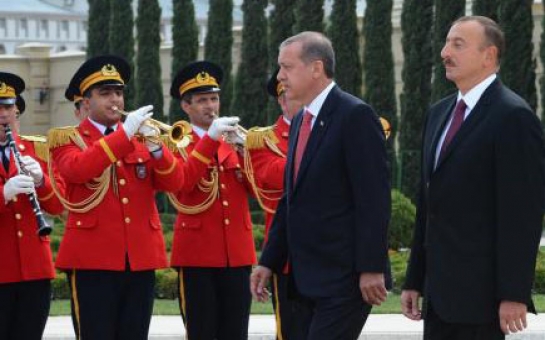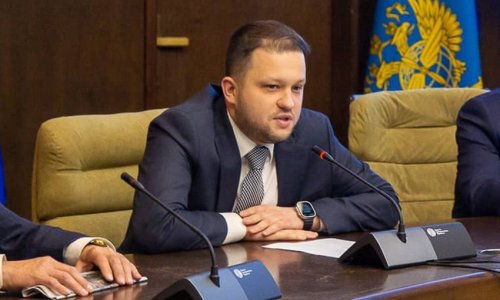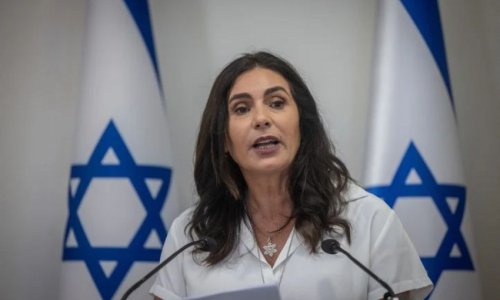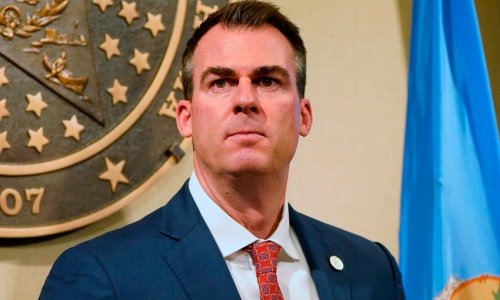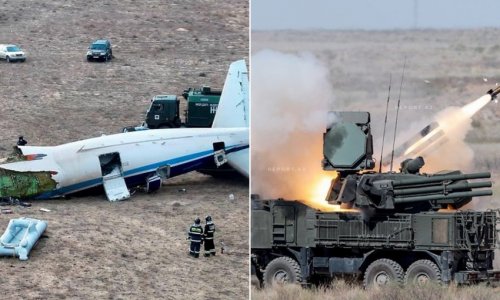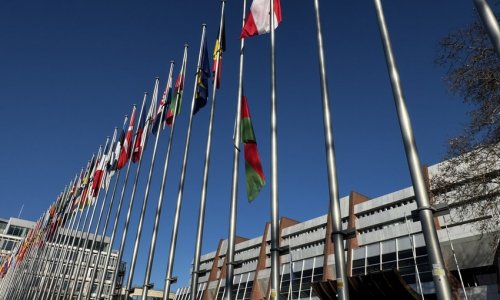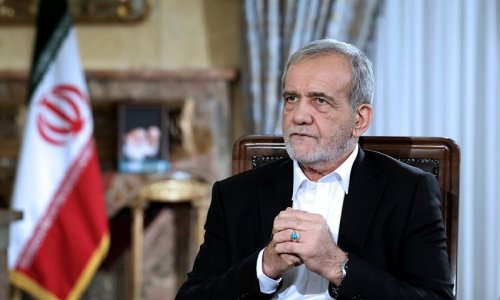Turkish President Recep Tayyip Erdogan's visit to Azerbaijan starting on Tuesday as his first official visit to abroad aimed to strengthen economic ties between the two countries, especially on energy and transportation cooperation.
Before his departure on Tuesday, Erdogan told reporters in the Turkish capital of Ankara that both countries have built on excellent ties in developing what he called strategic initiatives and cooperation in the south Caucasus.
"Baku-Tbilisi-Ceyhan crude oil pipeline and Baku-Tbilisi-Erzurum natural gas pipeline represent the two most important cooperation (areas) of our countries," Erdogan said.
The Turkish president underlined that these projects not only help develop bilateral ties but also contribute to the regional stability and welfare.
Erdogan's first visit to Baku as president, which is in line with the Turkish state tradition to reaffirm close ties between the two nations that share similar culture and
linguistic characters, aimed to further expand their energy ties.
"Cooperation between Ankara and Baku is guided more by cooperation in the areas of defense industry, energy and transportation than by the literature of brotherhood, which used to define the past," Hasan Kanbolat, Turkish expert on Caucasus said.
Both countries have started working on the Trans-Anatolian Gas Pipeline (TANAP), construction of a natural gas pipeline that will play a major role in energy diversification and security for Turkey and the wider Europe.
TANAP, once completed, will transport 16 billion cubic meters of gas a year from Azerbaijan's Shah Deniz II field across Turkey and eventually to Europe. The pipeline is important for European energy security as Europe tries to wean itself off Russian energy sources.
Ankara and Baku already set up the High Level Strategic Cooperation Council, sort of intergovernmental cooperation framework to fast-track joint projects, in order to bring a more strategic shape to dual relations between the countries.
Erdogan also mentioned that the Baku-Tbilisi-Kars railway line (BTK), a railway project connecting Azerbaijan's capital city of Baku to the eastern Turkish city of Kars, will have a new extension which connects Istanbul's Asian and European sides via an undersea commuter train line, was opened in October last year.
The Turkish president said that, with the completion of BTK, the railway link will be uninterrupted from Beijing to London through Marmaray in Istanbul.
The BTK will be one of the most important connections between Asia and Europe, with a line to be constructed between China and Kazakhstan's Aktau port over the Caspian Sea in the east. Marmaray already completes the west connection.
The line may eventually present new opportunities in the field of passenger and freight transportation. It will also become a part of the trans-Asian railroad line with the Baku-Caspian- Turkmenbasy-Almaty-China route.
Azerbaijan is also a leading foreign investor in Turkey, which adds further importance to the bilateral ties.
"The State Oil Company of the Azerbaijan Republic (SOCAR) is poised to become the biggest direct investor in the republic's history with investments worth 17 billion U.S. dollars planned in Turkey over the coming five years," Bulent Kenes, the editor-in chief of Turkish daily Today's Zaman said.
SOCAR is building a new refinery and port in Aliaga in Turkish western province Izmir. The Turkish president also reaffirmed that Ankara will continue to support Baku's position on Nagorno- Karabakh issue by saying that Turkey want the matter resolved with a respect to Azeri sovereignty and its territorial integrity.
Erdogan said he would exchange views with his Azeri counterparts on Nagorno-Karabakh issue during his visit.
Azerbaijan's Nagorno-Karabakh region and some adjacent territory have been under the occupation of Armenian soldiers and ethnic Armenian local troops since the end of a six-year separatist war in 1994. Diplomatic efforts to find a lasting solution to the conflict have failed over the past 20 years.
Turkey closed its border with Armenia in 1993 in solidarity with Azerbaijan. Ankara also helped modernize Azerbaijan military and boost its defense capabilities by entering joint cooperation in defense industry.
A sharp escalation in fighting between Azerbaijan and Armenia over the Nagorno-Karabakh in Aug. left dozens of soldiers dead on both sides.
"Karabakh remains a ticking time-bomb. Allowing it to explode would be devastating for the entire region," Amanda Paul, expert at Brussels-based European Policy Centre, said.
"A more creative approach to bring the conflict to a peaceful end is urgently needed," she warned. Erdogan said he will discuss with Azeri president what more Turkey can do to resolve this issue.
Erdogan's Baku visit came right after his visit to the Northern Cyprus, a breakaway region in Cyprus that is only recognized by Turkey as independent nation.
Azerbaijan President Ilham Aliyev were among the first leaders to congratulate Erdogan following the latter's election victory with 51.8 percent of the popular votes on Aug. 10.
Aliyev also paid a visit to Turkey in November last year right after he was reelected as president for the third term. Erdogan will travel to Wales, Britain, to attend a NATO summit after Baku visit. It will be Erdogan's first international summit as president.
(Xinhua)
Bakudaily.Az

